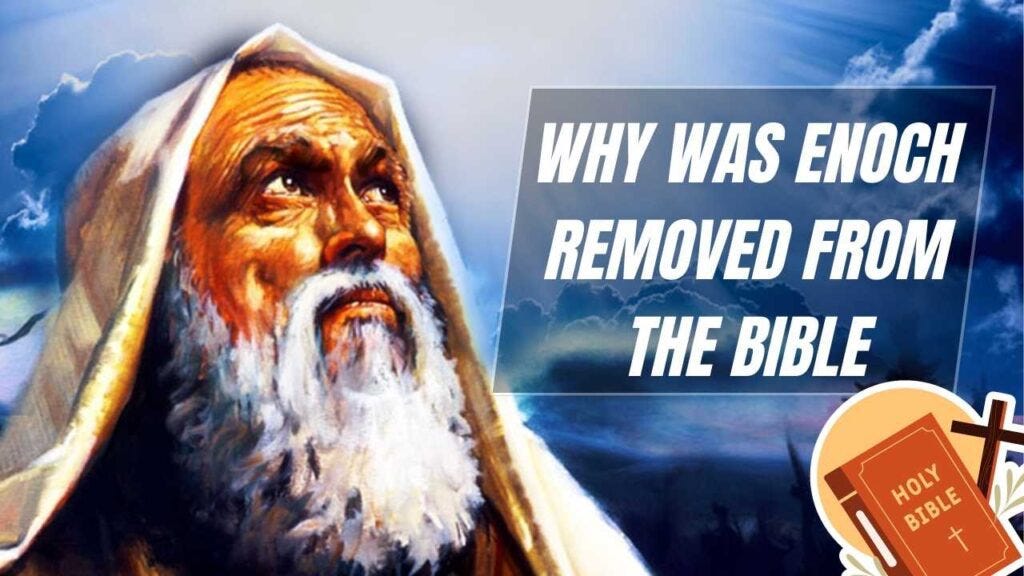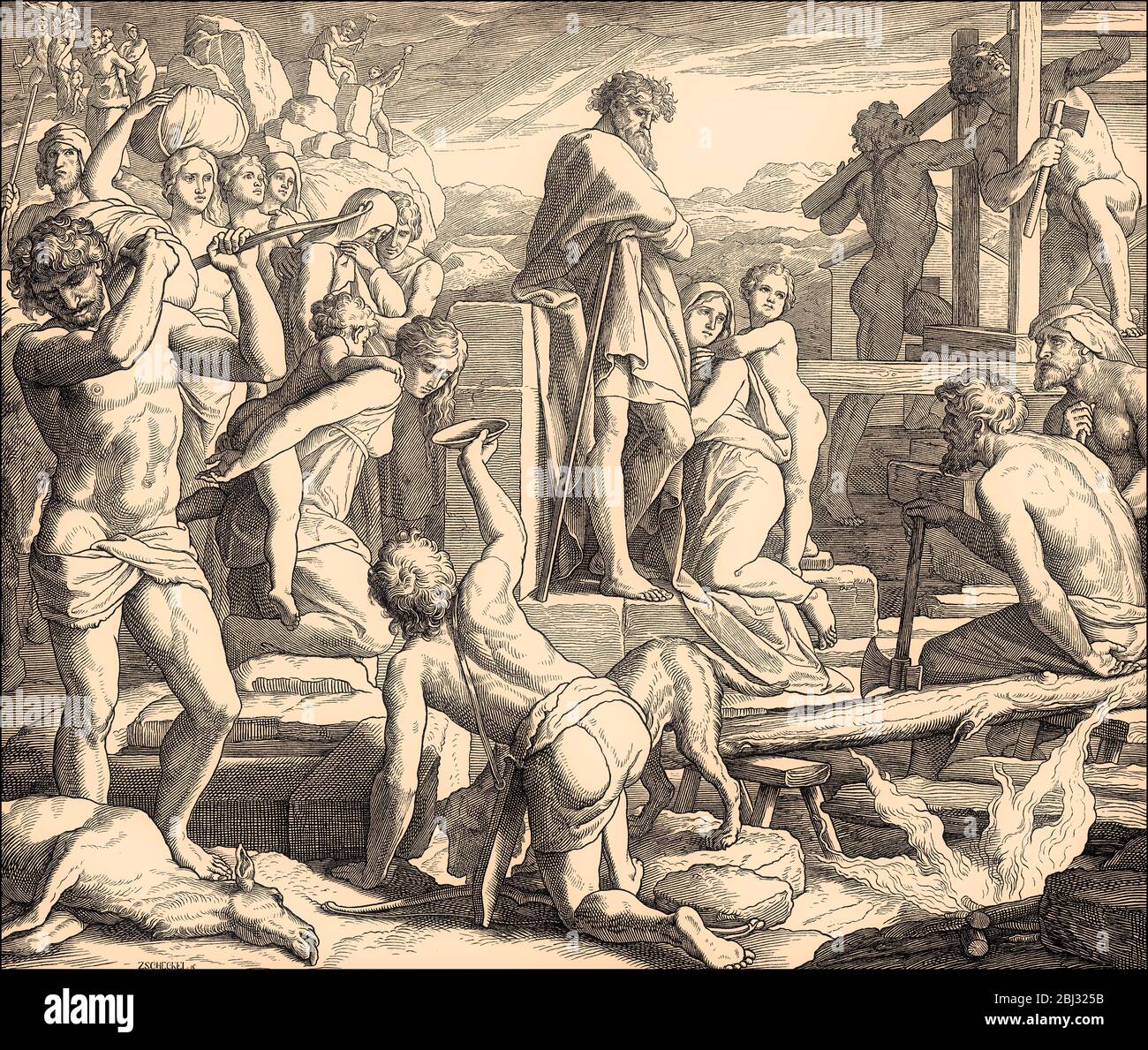The Bible is a collection of sacred texts that hold significant importance for various religious groups around the world. However, not all ancient religious texts are considered part of the Bible, and one such example is the Book of Enoch. This article aims to delve deeper into the origins, contents, and canonic status of the Book of Enoch, providing a comprehensive understanding of its significance in biblical studies.
Seemore: Why Stay Away from the Book of Enoch
Understanding the Book of Enoch

The Book of Enoch is an ancient Jewish religious work believed to have been written during the period of the Second Temple, between the 3rd and 2nd centuries BCE. It is attributed to Enoch, the great-grandfather of Noah, who is mentioned in the Bible as having “walked with God” and was taken up to heaven by God (Genesis 5:24). The book is not considered canonical by mainstream Jewish or Christian denominations, but it holds great significance for some religious groups.
The History and Origins of the Book of Enoch

The exact origins of the Book of Enoch are still debated among scholars, with some suggesting that it was written by a single author while others believe it was composed by multiple writers over time. The earliest known version of the book was found in the Dead Sea Scrolls, dated to the 2nd century BCE. However, fragments of the book have been found in Aramaic, Greek, and Latin, indicating that it was widely circulated and translated.
According to ancient Jewish literature, the Book of Enoch was originally written in the antediluvian period, before the Great Flood, and was preserved by Noah in the ark. However, there is no concrete evidence to support this theory, and it is likely that the book was written during the Second Temple period, influenced by various religious and cultural ideas prevalent at the time.
The Contents of the Book of Enoch

The Book of Enoch is divided into five main sections, each containing different topics and themes. These sections are believed to have been added at different times by various authors, leading to some inconsistencies in the text. Here is a brief overview of the main sections:
The Book of the Watchers
This section describes the fall of the Watchers, a group of angels who descended to Earth and mated with human women, giving birth to giants. This story is similar to the account found in Genesis 6:1-4, where it is mentioned that “the sons of God” took wives among the daughters of men. The Book of the Watchers expands on this narrative, providing more details about the actions and consequences of these fallen angels.
The Book of Parables
This section contains three parables spoken by Enoch, describing the future coming of the Messiah and the judgment of the wicked. It also includes apocalyptic visions of the end times and the establishment of a new kingdom ruled by the righteous.
The Astronomical Book
As the name suggests, this section provides a detailed calendar and astronomical calculations. It also delves into the study of astronomy and the movements of celestial bodies, including the sun, moon, and stars.
The Book of Dreams
This section records Enoch’s visionary experiences and revelations, including his encounters with angels and his ascension to heaven. It also discusses topics such as the creation of the world, the origins of evil, and the nature of sin.
The Epistle of Enoch
The final section of the Book of Enoch addresses ethical behavior and the nature of sin, urging readers to live a righteous life and avoid the temptations of the world.
The Authors of the Book of Enoch
The authorship of the Book of Enoch is still a subject of debate among scholars. Some believe that it was written by Enoch himself, while others argue that it was written by multiple authors over time. Some scholars also suggest that the book was compiled from various oral traditions and writings, with no single author responsible for the entire text.
The Controversies and Debates Surrounding the Book of Enoch
As with any ancient religious text, the Book of Enoch has been met with its fair share of controversies and debates. One of the main issues is its canonic status – whether it should be considered part of the Bible or not. This debate dates back to the early Church Fathers who rejected the book as apocryphal, meaning it was not considered authoritative. However, some religious groups, such as the Ethiopian Orthodox Church, consider the Book of Enoch canonical and include it in their biblical canon.
Another controversy surrounding the Book of Enoch is its mention of angels mating with human women, which goes against traditional Christian beliefs. Some scholars argue that this story was added by later authors, while others believe it could have been influenced by other ancient Near Eastern myths and stories.
The Significance of the Book of Enoch in Biblical Studies
Despite its controversial nature, the Book of Enoch holds significant importance in biblical studies. It provides valuable insights into the beliefs and practices of ancient Jewish communities during the Second Temple period. It also sheds light on various cultural and religious ideas that were prevalent at the time, such as angelology and apocalyptic literature.
Furthermore, the Book of Enoch has been used in modern biblical scholarship to better understand certain passages and themes found in the canonical Bible. For example, the New Testament book of Jude contains a direct quote from the Book of Enoch (Jude 1:14-15), indicating that early Christians were familiar with and possibly considered the book authoritative.
The Relationship of the Book of Enoch to Other Ancient Texts
The Book of Enoch shares many similarities with other ancient texts, both biblical and non-biblical. For instance, the story of the fallen angels is similar to that found in Genesis 6:1-4 and the Book of Jubilees. The apocalyptic visions in the Book of Parables are also reminiscent of those found in the Book of Daniel and the Book of Revelation.
On the non-biblical front, the Book of Enoch shares similarities with other apocalyptic texts from the same period, such as the Dead Sea Scrolls and the writings of the Essenes. It also contains elements from ancient Near Eastern myths and legends, indicating its influence from various sources.
The Interpretation of the Book of Enoch
Due to its enigmatic nature and multiple authors, the Book of Enoch has been interpreted in various ways by different religious groups and scholars. Some see it as a purely historical text, while others view it as a prophetic work with eschatological significance. Many also see it as a valuable source for understanding the origins of certain beliefs and practices within Judaism and Christianity.
The Lessons and Teachings from the Book of Enoch
Regardless of its canonic status, the Book of Enoch offers valuable lessons and teachings for readers. It emphasizes the importance of living a righteous life, avoiding sin and temptation, and staying faithful to God. It also speaks about the coming of the Messiah and the ultimate judgment of the wicked, providing hope and motivation for believers.
Furthermore, the Book of Enoch reminds us of the significance of preserving ancient texts and understanding their context and relevance. It serves as a reminder of the rich history and diversity of religious beliefs and practices throughout human civilization.
Conclusion
In conclusion, the Book of Enoch is a significant ancient Jewish religious work that holds great importance for various religious groups. Its origins, contents, and canonic status have been heavily debated throughout history, but its significance in biblical studies cannot be denied. Whether one considers it part of the Bible or not, the Book of Enoch offers valuable insights and lessons that are still relevant today. It continues to spark curiosity and fascination among scholars and readers alike, making it an essential text in the study of religion and ancient literature.
